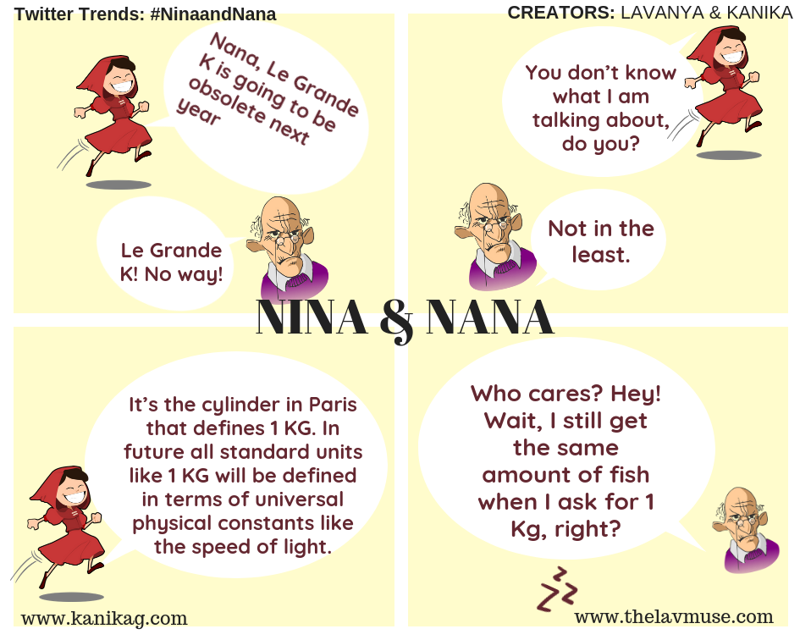
Image of Kibble Balance was obtained from Wikipedia
"The answer is 12 Miss", someone in class called out.
"12 what?" I remember the teacher asking. "12 is a meaningless answer." She chided. "You must specify the units for the answer to have meaning."
And she was absolutely right. The unit is the point of reference and all measurements and values are meaningless unless the unit of measurement is specified. So it is very important for units to be standardized across nations. The landmark Treaty of the Meter was signed in Paris in 1875 by 17 countries, standardizing the definition of the meter and then later the kilogram. The Le Grand K, a cylinder weighing exactly 1 kilogram made of a platinum iridium alloy, kept under environmentally safe conditions.
6 copies of the Le Grand K were made and despite all efforts to maintain it, the weight of the Le Grand K has deviated from that of its replicas over the last century.
Finally, scientists came to the conclusion that physical objects were not very reliable or convenient for defining standard units. A more fundamental and abstract definition was needed.
With the invention of the atomic clock, an idea was born. Using the electronic transition time between two levels of the Caesium atom, the second was defined quite precisely. Following that, using the value for speed of light and definition of the second, the meter was accurately defined too.
With the units of length and time precisely and abstractly defines, the standard unit of mass, the kilogram still posed some problems. But Planck's constant came to the rescue. This intriguing physical constant, incidentally, is what attracted me to Physics. It can connect the macroscopic classical world to the microscopic quantum world. It is the missing link in connecting classical particle property like momentum to a wave property like wavelength through the famous de Broglie equation, an elegant and effective hypothesis which stole my heart.
With precise measurements techniques available for the acceleration due to gravity anywhere on earth, and using a Kibble balance and the precise definition of Planks constant, a kilogram too has now been defined precisely and abstractly purely in terms of physical constants rendering the somewhat temperamental Le Grand K obsolete.
So as the New York Times rightly captioned its article on the subject, The Kilogram is dead. Long live the Kilogram. This article was shared with me by one of our readers Shreedeep Khandalkar. Thanks Shreedeep for sharing such an interesting article and as promised we have come up with a Nina and Nana cartoon. Hope you enjoy it.

Don't worry Nana. If the scientists have done their job right, the transition should be smooth sailing and we common folk shouldn't notice the change in regime at all, however it is a historic moment and if you are geeky like me, some decades down the line, you may find yourself telling your grandchildren stories about the displaced Le Grand K and the end of an era in the evolution of the metric system.
You can read Lavanya's take here.